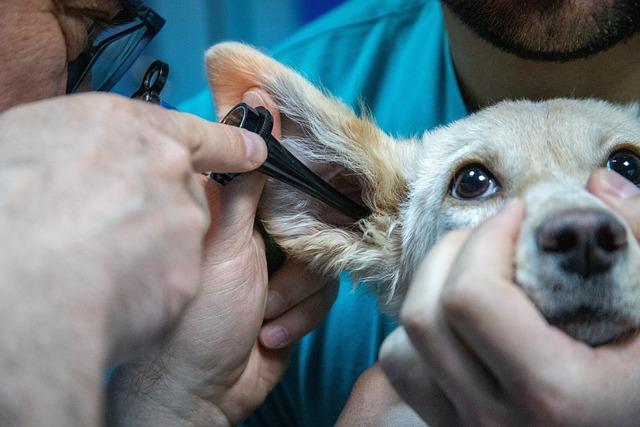In the heart of every pet owner’s journey lies a deep bond, a silent understanding shared with their furry companions. These beloved creatures become family, and naturally, their well-being is paramount. Yet, when faced with a wagging tail that’s lost its wag or a purr that’s grown faint, we turn to trusted veterinarians for guidance. But should we always accept their prescriptions without question? As we explore the world of vet-prescribed treatments for common ailments, let’s delve into the balance between trust and inquiry, and discover how asking the right questions can lead to more informed, compassionate care for our four-legged friends.
Navigating the Vets Advice with Confidence
Understanding the intricacies of vet-prescribed treatments can feel daunting, but approaching these conversations with confidence is key. It’s crucial to remember that your pet’s well-being is a collaborative effort between you and your veterinarian. Start by preparing a list of questions or concerns before your appointment. This might include asking about potential side effects, alternative treatments, or the necessity of certain procedures. By actively engaging in the dialogue, you ensure that you fully understand the proposed plan and its implications for your furry friend.
Consider these strategies to enhance your confidence:
- Research: Familiarize yourself with common ailments and treatments so you can engage in informed discussions.
- Clarification: Don’t hesitate to ask for clarification on medical jargon or complex explanations.
- Second Opinions: Seeking a second opinion can provide peace of mind, especially for significant treatments.
Ultimately, your comfort in discussing these matters will foster a more open and effective partnership with your vet, ensuring your pet receives the best possible care.

Understanding Common Pet Ailments and Their Treatments
When your beloved furry friend isn’t feeling their best, it’s only natural to rely on your veterinarian’s expertise. Yet, understanding the treatments prescribed for common pet ailments can empower you as a pet owner. Conditions like ear infections, flea infestations, and digestive issues are frequently encountered, and the treatments can vary widely. Here are a few common ailments and their typical treatments:
- Ear Infections: Often treated with medicated ear drops. Ensure you follow the vet’s instructions on application to prevent further discomfort.
- Flea Infestations: A combination of topical treatments and environmental control is usually recommended. Regular cleaning and vacuuming are essential.
- Digestive Issues: Dietary adjustments and probiotics might be suggested to soothe your pet’s tummy troubles.
While it’s important to trust your vet’s guidance, don’t hesitate to ask questions or seek a second opinion if something feels off. After all, you know your pet best, and being informed allows you to advocate effectively for their health and happiness.

Building a Partnership with Your Veterinarian
Creating a collaborative relationship with your veterinarian can transform the way you approach your pet’s health. Think of your vet as a partner, someone who not only provides medical expertise but also values your insights as a pet owner. Open communication is key. When discussing treatments for common ailments, don’t hesitate to ask questions. Understanding the rationale behind a prescribed treatment can empower you and ensure you’re making informed decisions for your furry friend.
Consider these strategies to enhance your partnership:
- Be proactive: Share observations about your pet’s behavior and health changes.
- Ask for clarity: If a treatment or diagnosis isn’t clear, request further explanation.
- Express concerns: Discuss any hesitations about prescribed medications or procedures.
By fostering a trusting and respectful relationship, you can work together to provide the best care possible, ensuring your pet’s well-being is always the top priority.

Empowering Pet Owners: Questions to Ask Your Vet
When navigating the world of pet healthcare, it’s essential to feel empowered and informed. Asking the right questions can help ensure your furry friend receives the best care possible. Here are some thoughtful inquiries to consider during your vet visits:
- What are the potential side effects? Understanding the risks can help you weigh the benefits of any treatment.
- Are there alternative treatments? Inquiring about different approaches, including natural remedies, can open up new possibilities.
- How will this treatment improve my pet’s quality of life? This question centers on the well-being and happiness of your pet.
- What should I monitor at home? Knowing what signs to look for can help you catch any issues early.
Remember, a good veterinarian will welcome your questions and provide the guidance you need to make informed decisions. After all, you know your pet best, and your insights are invaluable in their care.


































